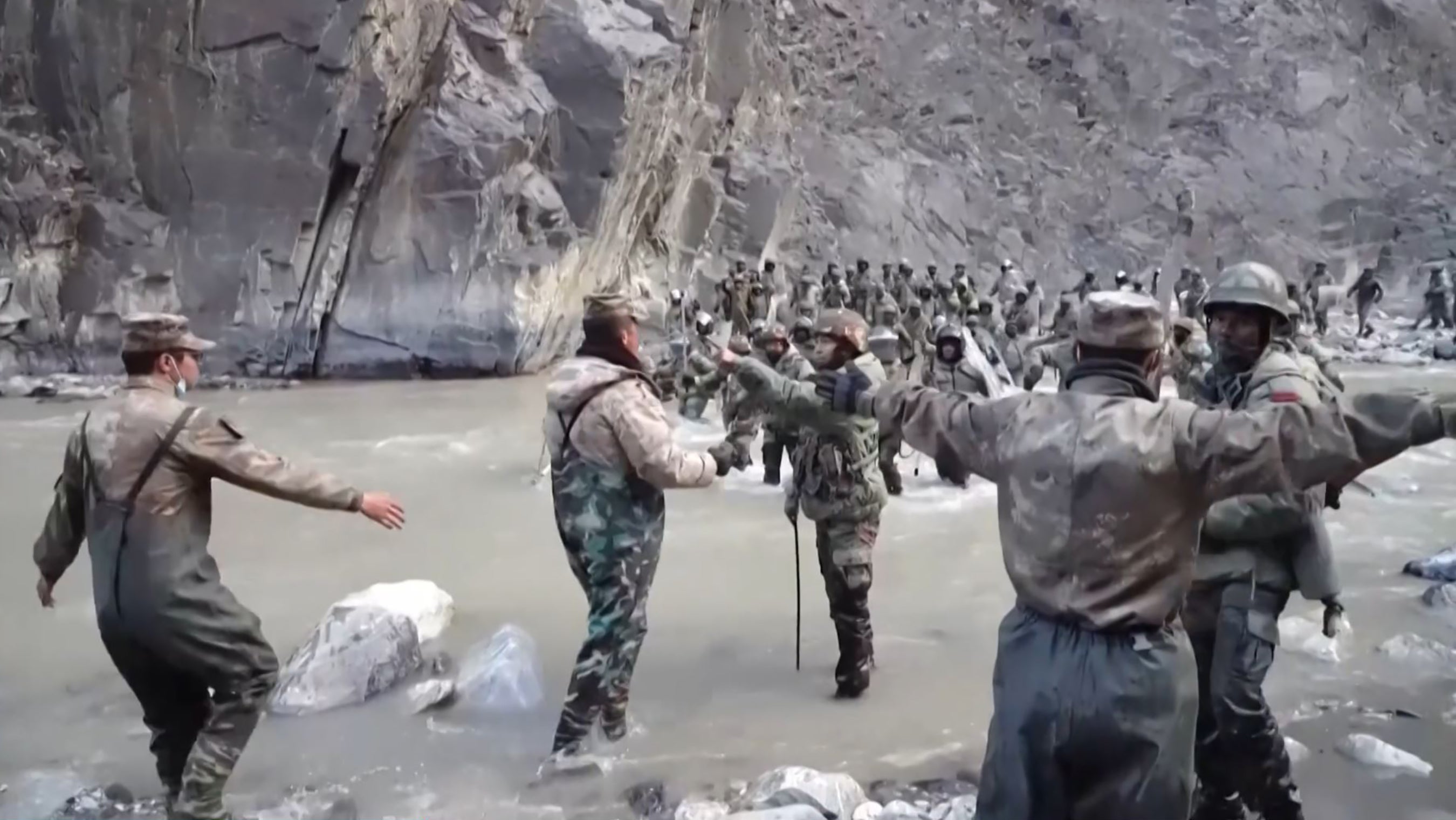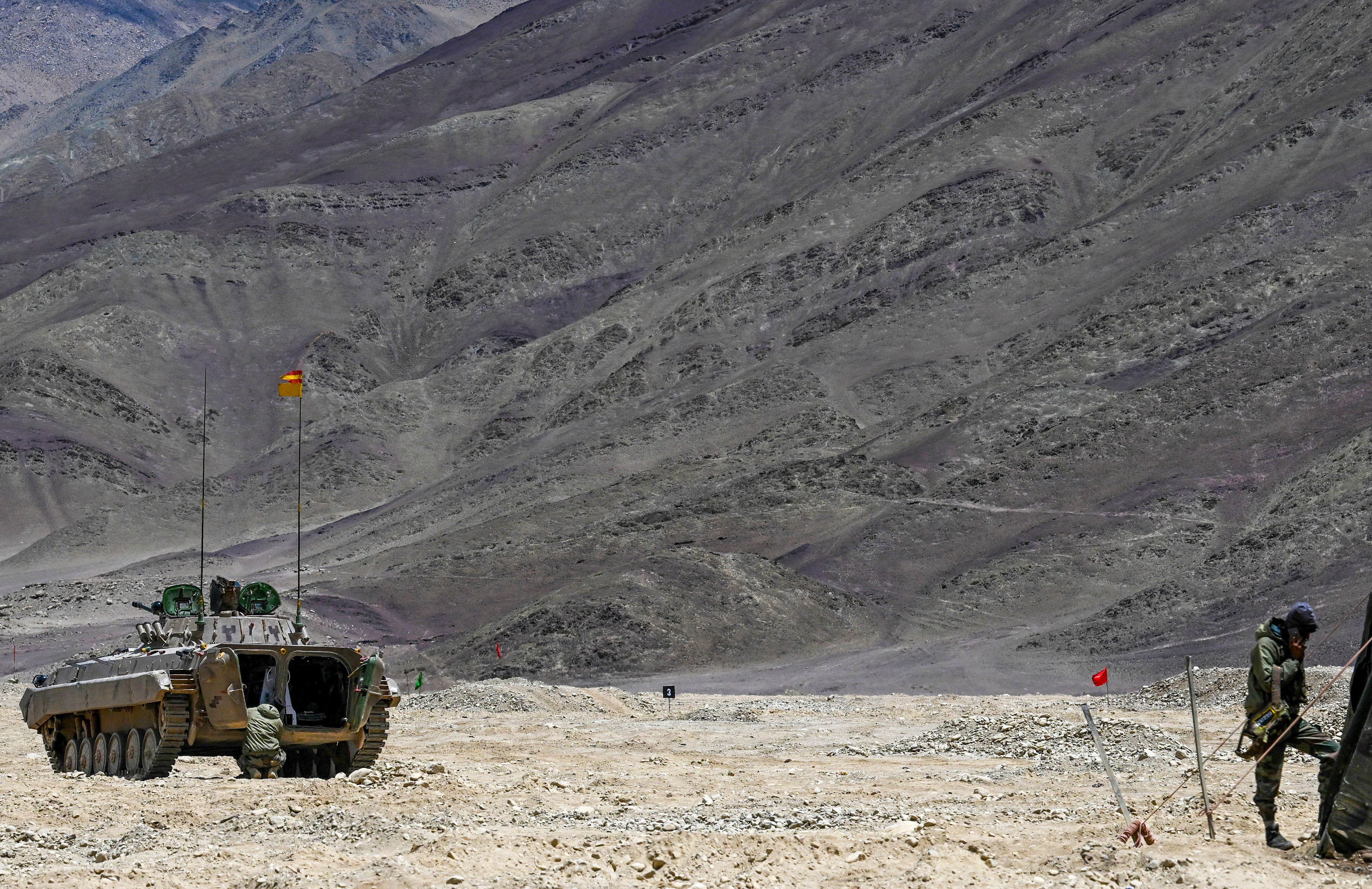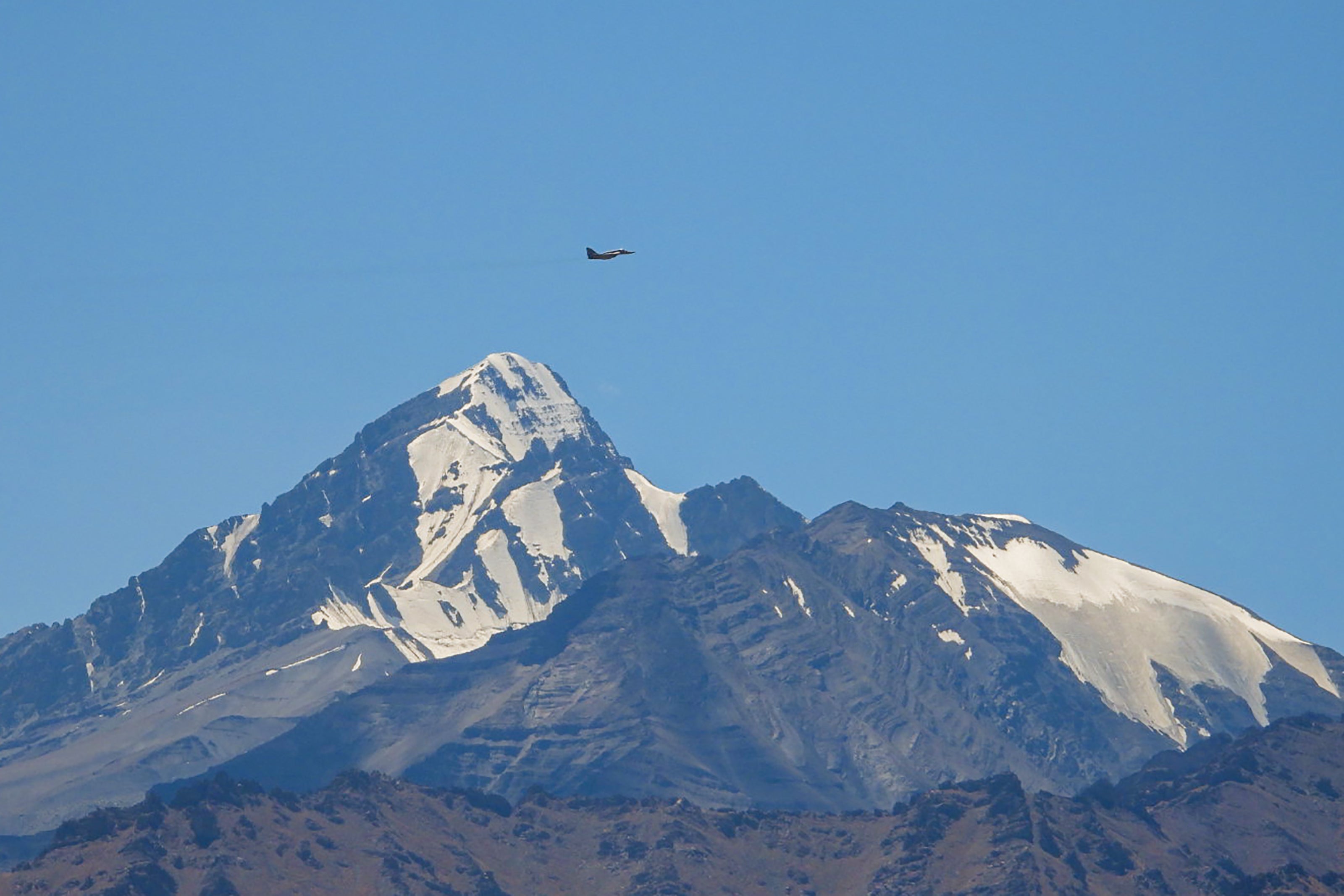India and China start disengaging at Himalayan border after new pact signalling thaw in ties
Hundreds of Indian and Chinese troops standing eyeball-to-eyeball are moving back from their positions
Your support helps us to tell the story
From reproductive rights to climate change to Big Tech, The Independent is on the ground when the story is developing. Whether it's investigating the financials of Elon Musk's pro-Trump PAC or producing our latest documentary, 'The A Word', which shines a light on the American women fighting for reproductive rights, we know how important it is to parse out the facts from the messaging.
At such a critical moment in US history, we need reporters on the ground. Your donation allows us to keep sending journalists to speak to both sides of the story.
The Independent is trusted by Americans across the entire political spectrum. And unlike many other quality news outlets, we choose not to lock Americans out of our reporting and analysis with paywalls. We believe quality journalism should be available to everyone, paid for by those who can afford it.
Your support makes all the difference.India and China started pulling back their troops at the disputed Himalayan border as the two nuclear-armed powers began ending their four-year-long military standoff.
The major anticipated border de-escalation marks the biggest thaw between New Delhi and Beijing since the deadly clashes between their troops in May 2020 in Galwan Valley.
Hundreds of troops of the Indian Armed Forces and People’s Liberation Army (PLA) standing eyeball-to-eyeball at two points on the border in the western Himalayas are moving back from their positions, an Indian government source said on Friday.
“According to the recently agreed solution between India and China, their frontline armies are implementing relevant work, with smooth progress so far,” Lin Jian, a spokesperson for China’s foreign ministry said in Beijing on Friday.
A government official in New Delhi said troops on both sides of the border have started withdrawing from the areas of Depsang and Demchok, the last remaining frontline points where they stood face-to-face.

In New Delhi, a government official speaking on the condition of anonymity and aware of the details said troops on both sides had started withdrawing from the areas of Depsang and Demchok, the last remaining points where they had stood face-to-face.
India and China have been embroiled in regional tensions since July 2020 after a military escalation in Galwan Valley killed 20 Indian soldiers and four PLA soldiers. Friction between the two nuclear-armed neighbours remained at an all-time high as the clash morphed into a long-running standoff in the rugged mountainous area.
China and India heightened their security arrangements and stationed tens of thousands of military personnel backed by artillery, tanks and fighter jets.

But in a major breakthrough on Monday at the Brics Summit in Kazan, India announced that it has agreed with China to a pact on resumption of military patrols along the border in the Himalayan region, ending the stand-off.
A day later, China’s foreign ministry also confirmed that Beijing “will work with India to implement these resolutions properly”.
The deal came through as president Xi Jinping and prime minister Narendra Modi met in Kazan on the sidelines of the regional summit as they met Russian president Vladimir Putin.
While neither China nor India have publicly announced the details of the new pact, Mr Xi and Mr Modi on Wednesday agreed to boost communication and co-operation in a bid to help end the conflict.
Both nations have earlier ordered pull back of troops from five other face-off points but the last such withdrawal happened over two years ago.

The clashes had led to a major diplomatic and military fallout between India and China. India, as a result of the clashes, blocked direct flights with China, banned hundreds of Chinese mobile applications and added layers of vetting on Chinese investments, drying up major proposals from giants like BYD and Great Wall Motors.
However, now New Delhi is considering opening up the skies and fast-tracking visa approvals to complement the recent easing of tensions, reported Reuters citing two Indian government sources.
They added that New Delhi will be taking baby steps and is not ready yet to reverse all steps taken against Beijing any time soon.
India and China have fought a war over their undemarcated border in the Himalayan passes in 1962.

Join our commenting forum
Join thought-provoking conversations, follow other Independent readers and see their replies
Comments